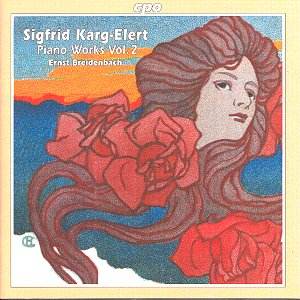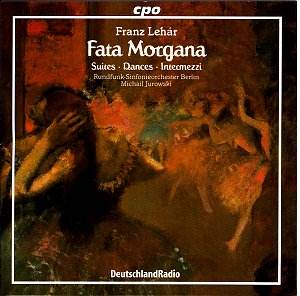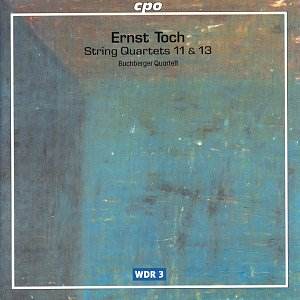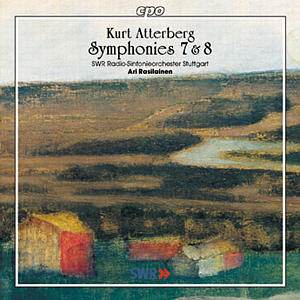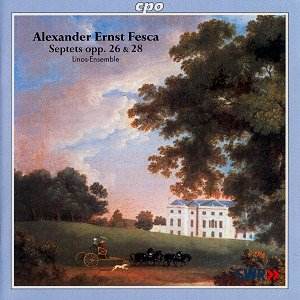 Composer: Alexander Ernst Fesca
Composer: Alexander Ernst Fesca
Works: Septet No. 1 in C minor, Op. 26; Septet No. 2 in D minor, Op. 28
Performers: Linos-Ensemble: Konstanze Eickhorst (piano), Mario Blaumer (cello), others
Recording: South West German Radio Studios, Stuttgart, November 9th-11th, 1999
Label: CPO
The music of Alexander Ernst Fesca, a relatively obscure figure in the pantheon of Romantic composers, offers a refreshing excursion into the lesser-explored realms of chamber music. Fesca, who lived a tragically brief life from 1820 to 1849, produced a substantial body of work despite his early death at 28, including over 120 songs and several chamber pieces. His two septets, composed in 1842 and shortly thereafter, showcase his melodic inventiveness and charm, though they do not aspire to the profound emotional depths associated with the era’s more celebrated composers. CPO’s release of these works, priced appealingly to encourage exploration, is a welcome addition to the catalog of Romantic chamber music.
The Linos-Ensemble’s performance of Fesca’s Septet No. 1 in C minor is marked by an infectious energy that captures the playful spirit inherent in the music. The first movement, allegro, brims with a buoyant character, highlighted by pianist Konstanze Eickhorst’s effervescent execution of the scales and arpeggios that pepper the score. Her playing is consistently engaging, although her chordal passages occasionally lack the required robustness. The ensemble’s cohesion is commendable; each musician contributes to a vibrant tapestry of sound, notably evident in the Andante con moto, where cellist Mario Blaumer’s lyrical lines stand out, delivering a beautifully sung quality that resonates throughout the movement.
However, the finale presents a compositional challenge for Fesca, as his attempts at dramatic intensity lead to a somewhat thin texture over its nine-minute span. The thematic material, while charming, does not sustain the listener’s interest as effectively, and one might find the movement becomes a tad repetitive. Yet, Eickhorst’s adept left-hand figuration towards the end revitalizes the close, showcasing her technical finesse and musicality.
The D minor Septet, composed shortly after its predecessor, shares instrumentation and thematic similarities, creating an unavoidable sense of sameness. Nevertheless, the Linos-Ensemble infuses the performance with a spirited vibrancy, making the first movement a particularly joyous experience. The interplay between instruments is handled with precision; the ensemble’s enthusiastic exchanges are both aural pleasure and a testament to their technical prowess. The finale, with its gypsy and folk influences, is a delightful departure, and the ensemble’s impeccable sense of timing and unity shines as they navigate the intricate passages together.
The recording quality by CPO is commendable, presenting a clear and well-balanced sound that allows for each instrument’s character to emerge distinctly. The non-interventionist approach to engineering ensures that the natural acoustics of the studio enhance the listening experience without overwhelming it with artificial enhancements.
Fesca’s septets may not possess the weighty significance of the works by more renowned contemporaries, but they convey a delightful charm that is thoroughly enjoyable. The Linos-Ensemble’s spirited interpretations elevate these compositions beyond mere historical curiosity, rendering them a worthwhile experience for both seasoned chamber music enthusiasts and newcomers alike. Embracing the music’s inherent buoyancy, this recording serves as an inviting entry point into Fesca’s world, where lightness and delight take precedence over profundity.
